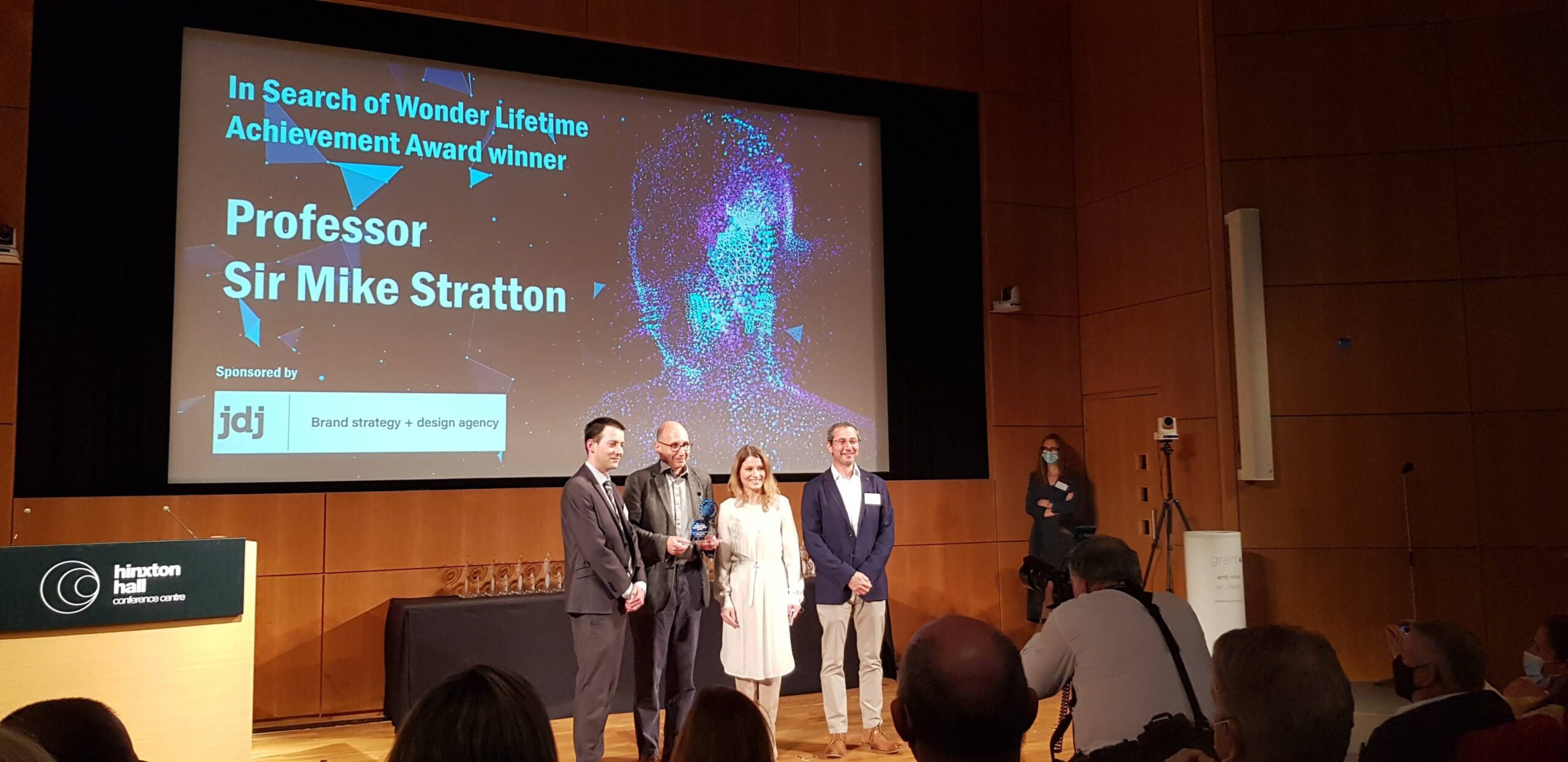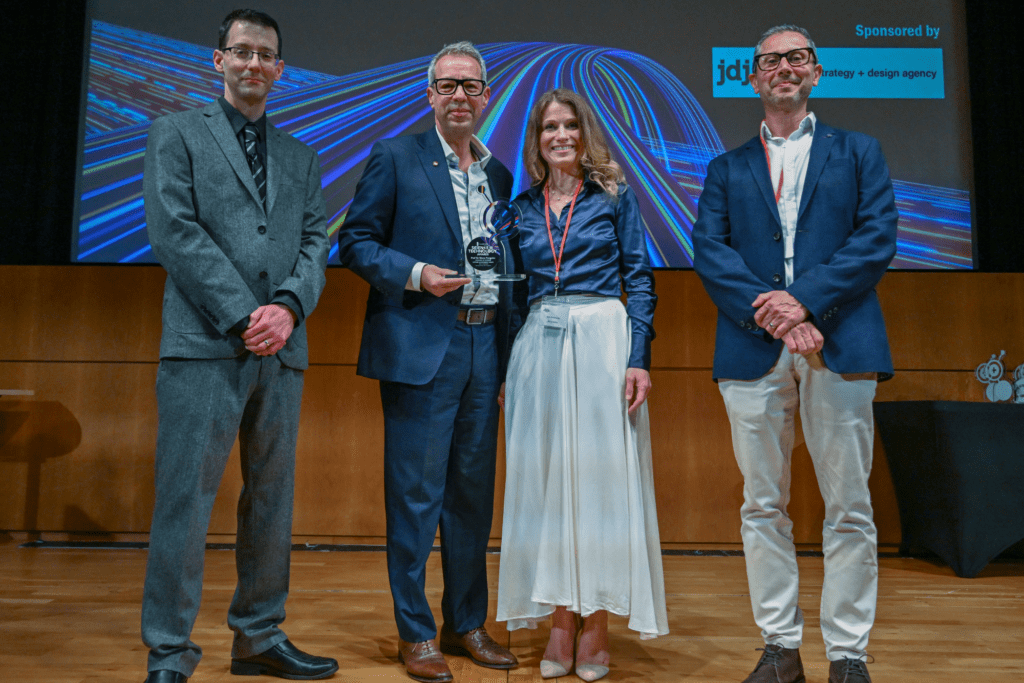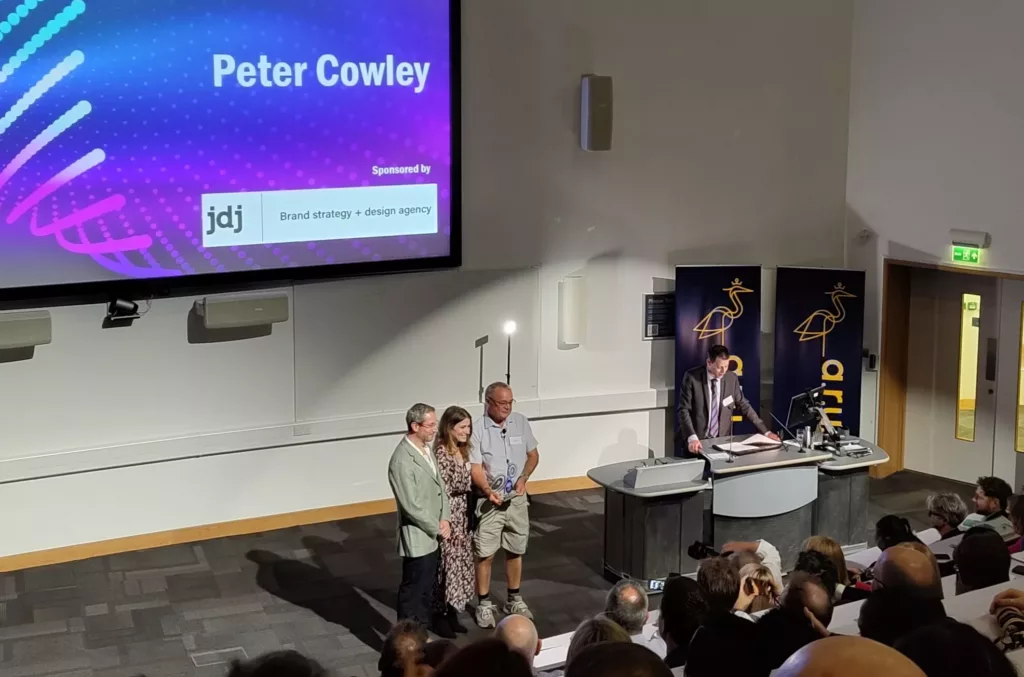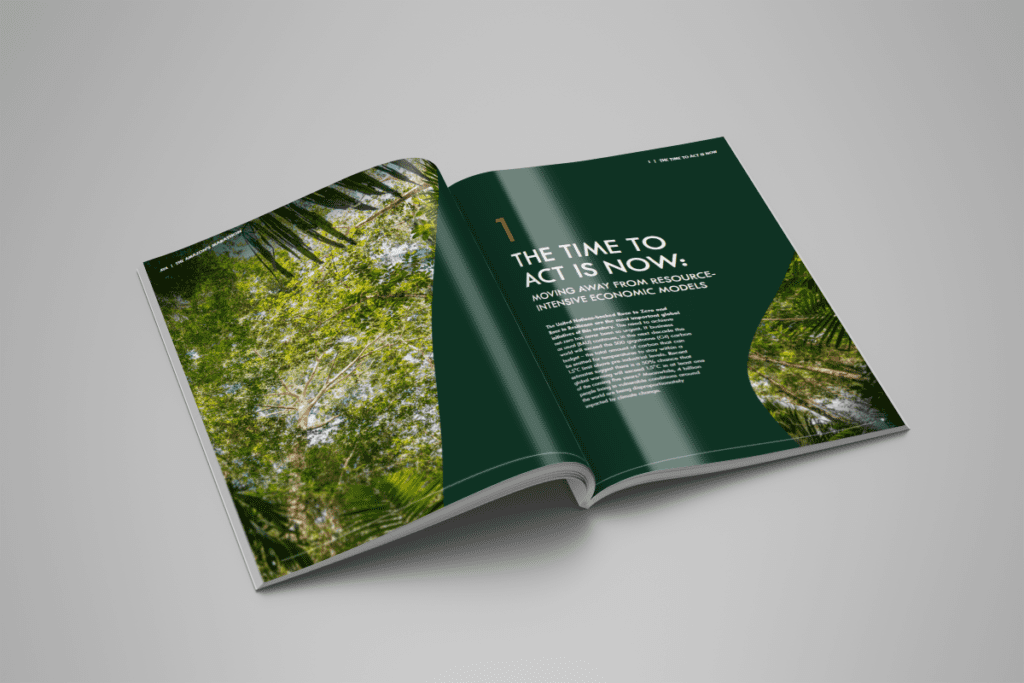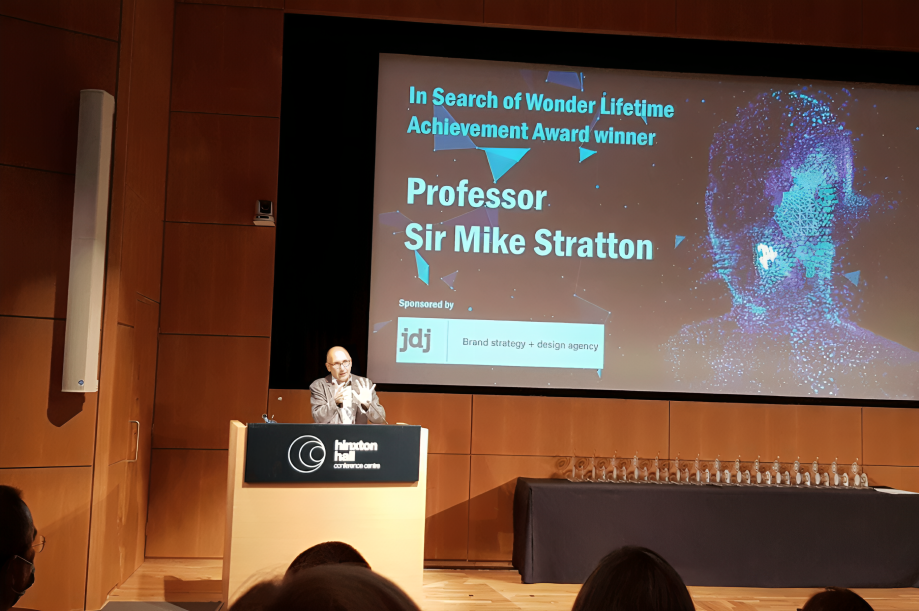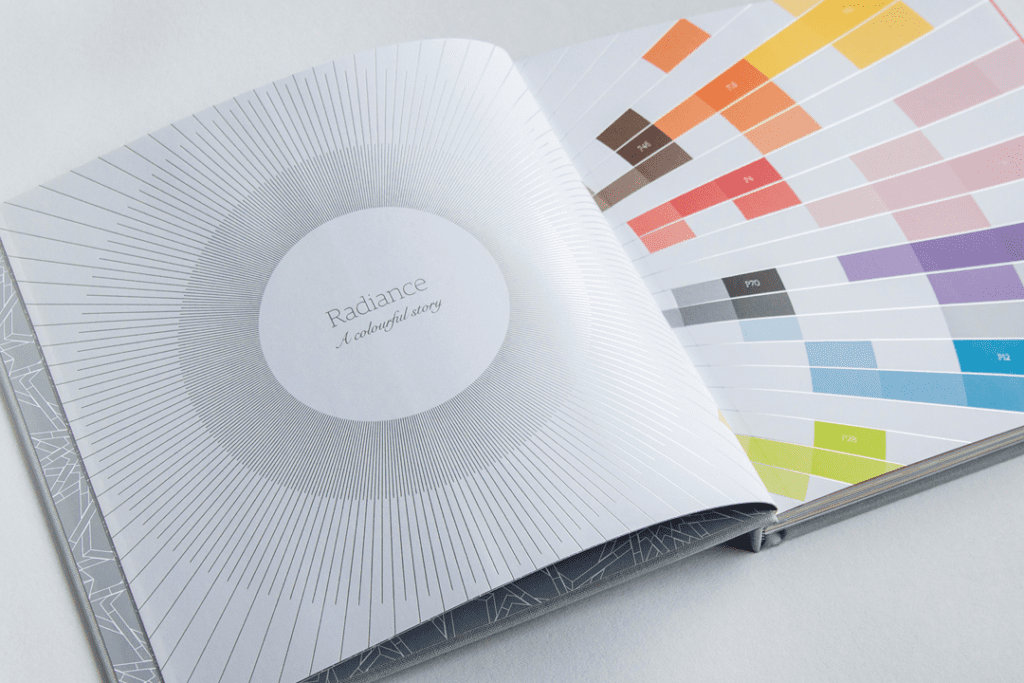Recognising the individuals and organisations behind some of Cambridge’s greatest creations and discoveries, In Search of Wonder® celebrates innocent curiosity and the power of innovation. That’s why we partnered with the Cambridge Independent to sponsor their Lifetime Achievement award at the Science and Tech awards.
Now we have the honour of announcing the inaugural recipient - the world-renowned clinical scientist… Sir Michael Stratton.
Sequencing the cancer genome
The human genome. The biological set of instructions that make us, us. A mind-blowing collection of 3.2 billion DNA bases, derived from 23 pairs of chromosomes. Formed of the 20,000 gene patterns that make a person unique. Perfectly replicated in each of the trillions of cells in our body, the information included within responsible for making us grow, develop and, ultimately, stay alive.
In short, it’s a fascinating and complex thing.
Our inaugural lifetime achievement award recipient certainly thinks so – he’s dedicated his life to exploring it, after all. And thanks to the work of him and his team at the Wellcome Sanger Institute, we have successfully sequenced parts of this information and used it to save and prolong countless lives.
Here we learn more about the award recipient: Sir Michael Stratton.
Sir Michael Stratton – From ward to lab
Graduating from Brasenose College, Oxford with a degree in medicine in 1979, Stratton’s career started on hospital wards, but soon transferred to the lab. Following early experiences as a junior doctor at Guy’s Hospital, London, a fascination with cancer genetics led him to undertake further training to become a histopathologist – an expert doctor who studies cellular samples under a microscope.
Fuelled by his curiosity, Stratton wanted to discover more about what makes the human body work as it does. Speaking to yourgenome.org about his early career, he said: “peering into this hidden world provides you with profound and powerful insights into the ways disease is generated… there is sometimes awful beauty in the way cells conspire to orchestrate life-threatening conditions”.
Eleven years later, he would complete his PhD, researching the molecular biology of cancer at London’s Institute of Cancer Research (ICR) and accept a role at the same organisation.
This is where it gets interesting.
While at the ICR, Stratton and his team worked day and night to identify BRCA2 (Breast Cancer 2) – a gene that, if mutated, significantly increases the risk of breast cancer in men and women. When working correctly, the BRCA2 gene actually helps our bodies to repair damaged DNA, so any genetic mutations that inhibit its function can lead to an increased chance of developing cancer.
This discovery was in December 1995.
Since then, this learning has led to new innovations in cancer testing, prevention and treatment. We now know that mutations in BRCA2 lead to increased risks of ovarian, Fallopian tube, prostate and pancreatic cancers. This knowledge means people with a family history of breast and ovarian cancer can have access to genetic screening that will identify if they too have a faulty BRCA1 or BRCA2 gene. Those that do can then monitor changes through regular breast screening, have surgery to remove the breasts or ovaries, or use preventative drugs to lower the cancer risk.
This has played a big part in the reduction of deaths from breast cancer in recent years.
But it’s only the start of Stratton’s achievements.
The Cancer Genome Project – Further breakthrough discoveries
In 2000, Sir Stratton moved to Cambridge to join the Wellcome Sanger Institute. Already a large player in the international Human Genome Project – an ambitious piece of research to map and sequence all of the genes in the human genome – the institute was at the forefront of genomics and continues to push boundaries to this day.
Stratton could immediately see the benefits for his own field, and it was here that he introduced the Cancer Genome Project with an ambitious aim: to identify all cancer genes.
The project has been a success.
In 2002, he and his team discovered mutations in the BRAF gene, which can be found in 60% of malignant melanomas. Nowadays BRAF inhibiting drugs have led to improved survival rates as a direct result of this research.
By 2020, over 800 cancer genes had been identified through Sanger scientists, and others around the world.
More recently working as one of the lead researchers on the International Cancer Genome Project – a worldwide collaboration studying cancer genomes in 50 different cancer types – Stratton has continued to advance our understanding of the causes of cancers enabling us to discover more ways to prevent and treat them.
Darwin Tree of Life – The most ambitious challenge
The next step for Stratton and the Wellcome Sanger Institute is their most ambitious yet – sequencing all of life.
Speaking of this project at the Science and Tech Awards, Stratton said:
“Possibly the most ambitious challenge that we are getting ready to address is sequencing all the different species on earth i.e. all of life. There are probably about 2 million species, or there are 2 million species that we know the names of, and almost certainly many many others. And we will start in that endeavour by sequencing the 70,000 species which exist in the UK and Ireland in a project which we call the Darwin Tree of Life.
“And in this way, we as human beings will justify our status, not just as another species, but as custodians of life on Earth. Cataloguing all of life so that we can understand it, so we can look after it well, and preserve it.”


